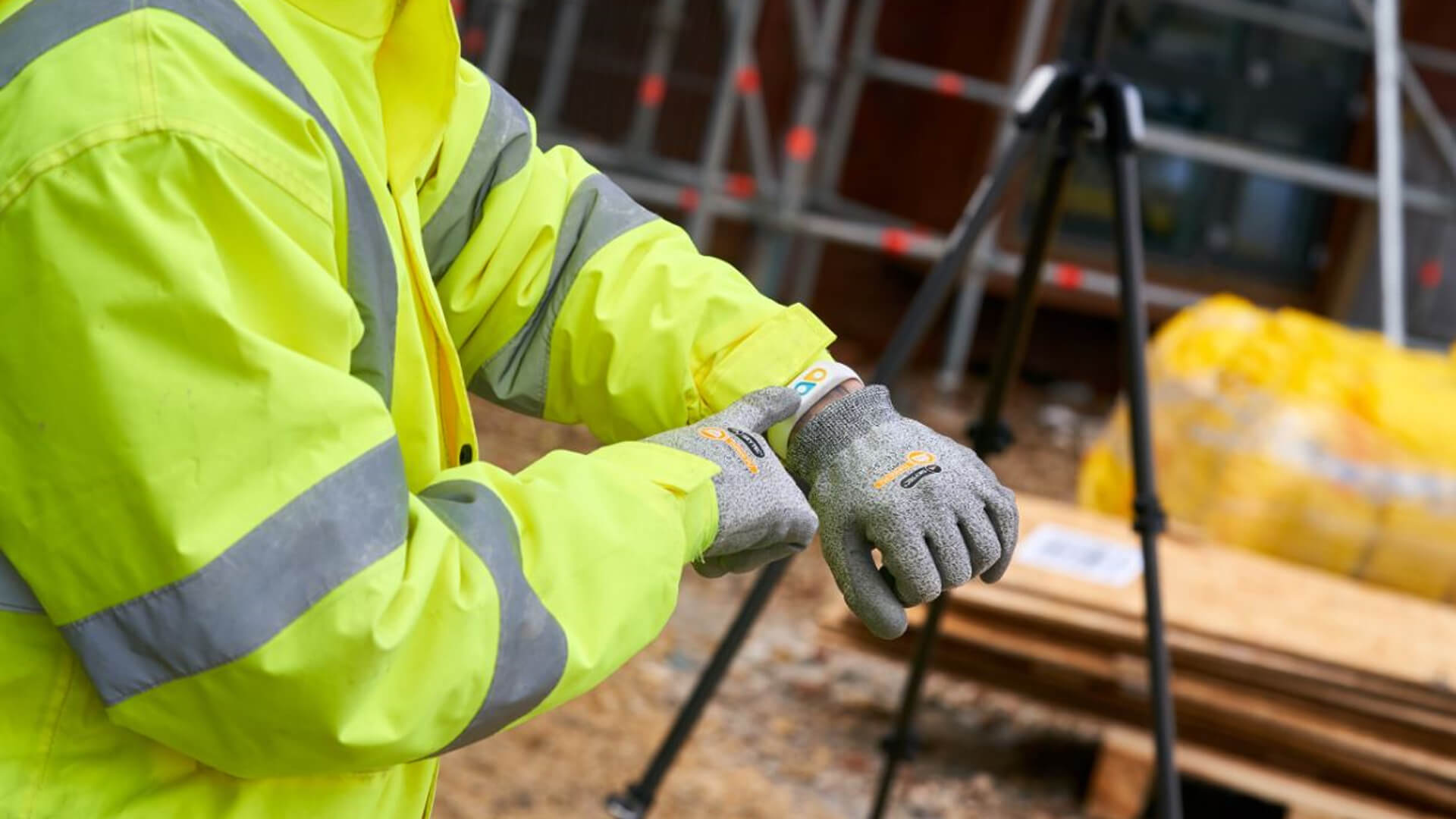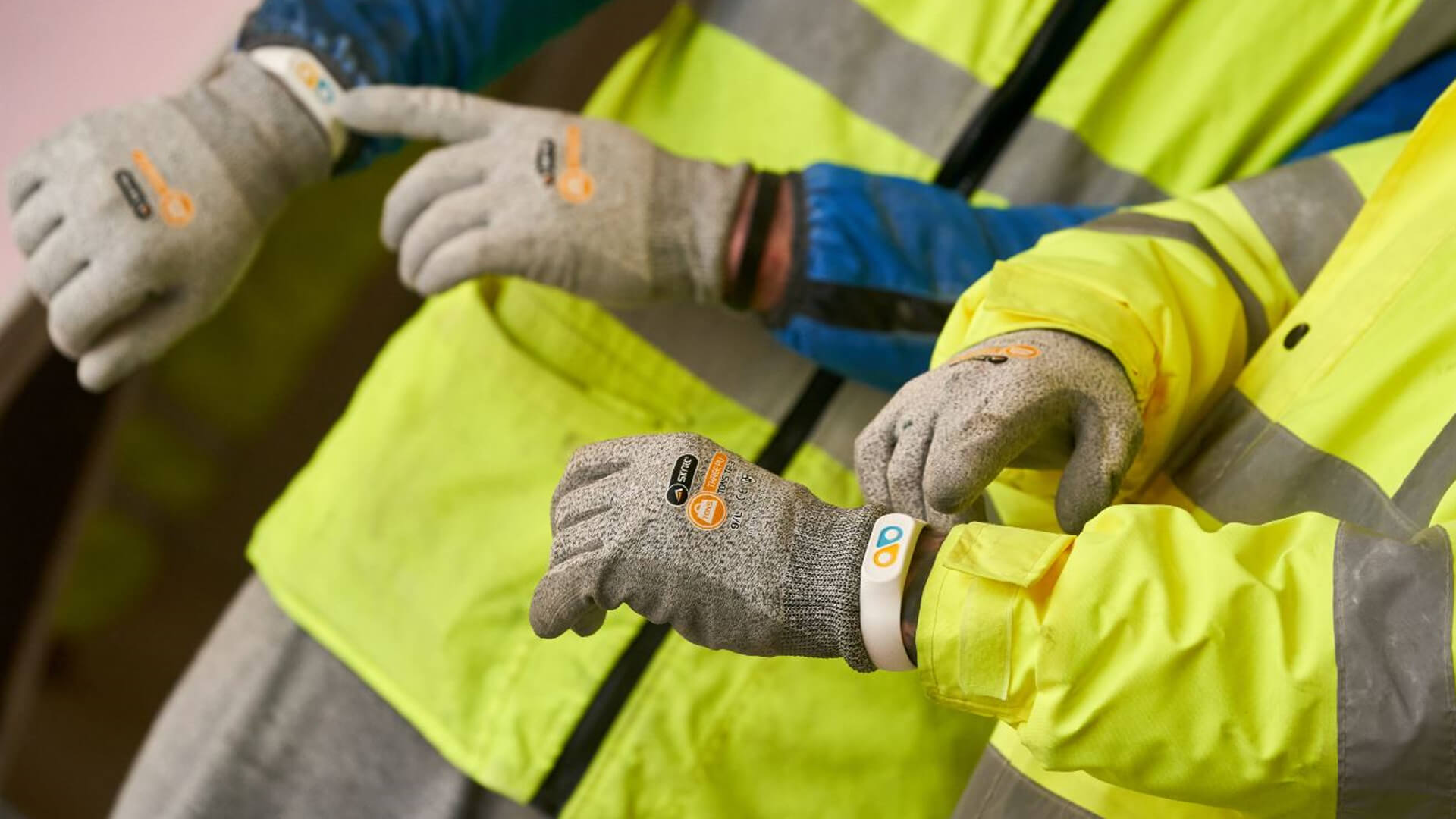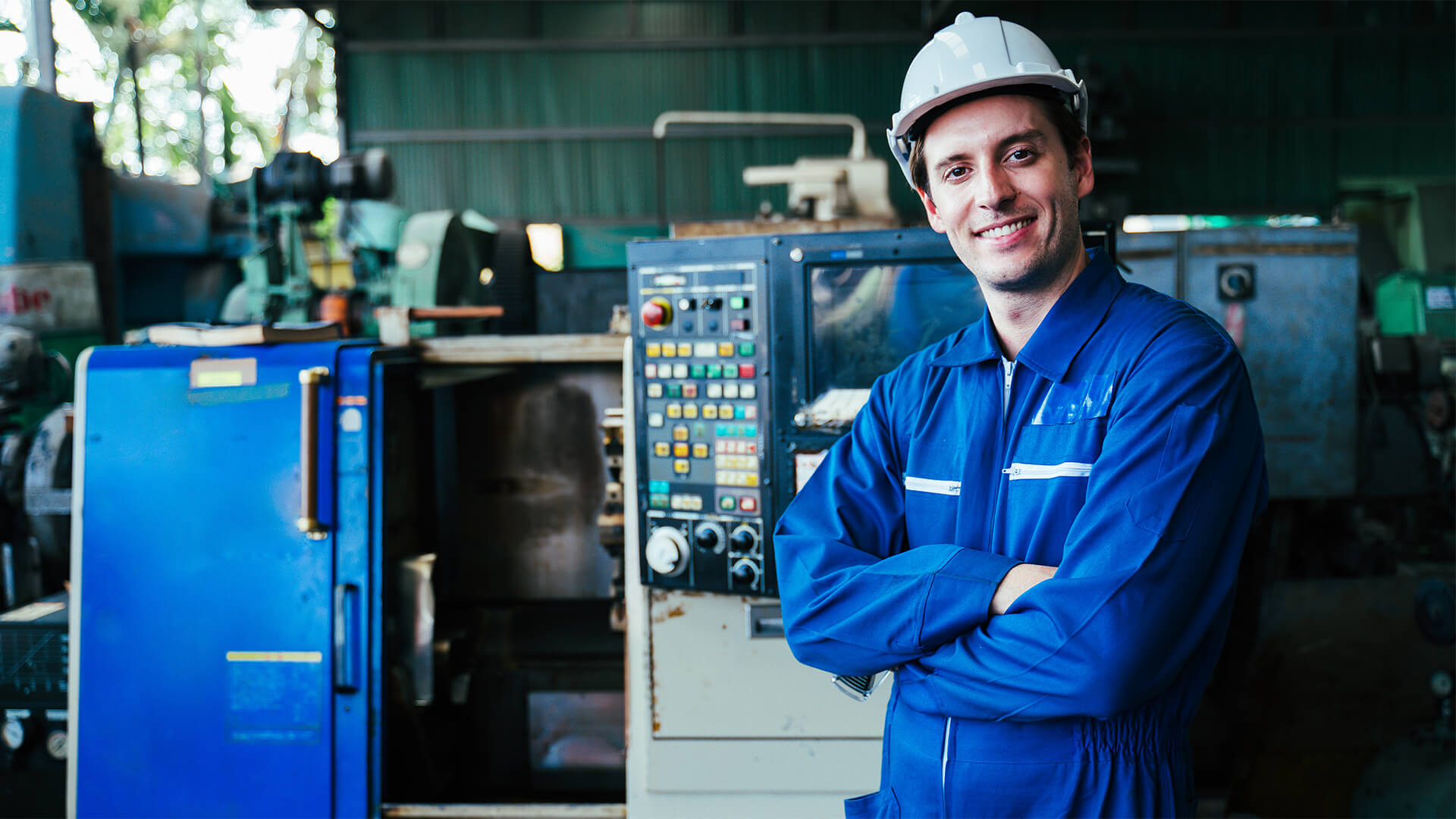National framework organisation Pagabo has entered into a partnership with health technology brand Moodbeam to look after and promote the wellbeing of everyone working on projects in the built environment through the use of wearable technology.
Moodbeam One is the world’s first wearable device, focused on capturing mood in real time through the simple pressing of a button.
Mental health and wellbeing in construction was already a key concern for the industry, but statistics released by the Chartered Institute of Building (CIOB) show that as the sector deals with the fallout from coronavirus this issues will become critical.
The report – Understanding Mental Health in the Building Environment – includes statistics that 26 per cent of construction workers had experienced suicidal thoughts and 97 per cent had experienced stress over the past year. Having been conducted in August 2019, this survey takes no account of the additional pressures from the coronavirus pandemic.
This is driving a great deal of conversation in the industry on improving the wellbeing of the workforce and a series of trials has been developed to test how the Moodbeam technology can be used to improve the way construction projects are managed throughout all stages.
The tests involve a wide cross section of the industry including on-site project teams, off-site manufacturing teams, remote working teams and the subcontracted workforce.

The first round of on-site trials completed prior to the COVID-19 pandemic on live projects led by contractors on Pagabo’s Major Works Framework – Morgan Sindall Construction and Willmott Dixon. Both staff employed directly by the contractors and sub-contractors working on the sites were provided a Moodbeam One wristband, funded by Pagabo’s Innovation fund, and used it to track if they were having a good or bad day at work, in real time. Trials are also took place with subcontractors M2 Civils and manufacturer ECO Modular Buildings.
Simon Toplass, chief executive at Pagabo, said: “Everyone involved in these trials recognises that to instigate real change in the industry we need to listen to the voice of all people involved in delivering a project. This includes consultants, manufacturers, contractors and sub-contractors.
“The industry is starting to talk about the pressure that is felt by its workforce, and this pioneering initiative starts to provide a way of staying in tune with how staff are feeling. The data captured during the trials is completely anonymous and will be used to highlight any challenges and stress points on-site, as well as capturing when things are going well.
“There are so many things that can affect whether workers will have a good or bad day – from weather factors to deadlines, long periods of remote working to unsocial shift patterns – so the Moodbeam One allows a really simple way for people to feedback. Now, as sites are reopening and sections of the workforce are returning to work, the COVID-19 pandemic has created added pressures for people, which will impact their wellbeing both in and out of work. The wristband design allows workers to have a voice through discreet, anonymous feedback – through simply pushing a single button.”
A second round of trials was set to take place over the last two months but were put on hold in order to adhere to health and safety regulations and social distancing measures introduced during coronavirus pandemic.
Fully managed services will be on offer to assist companies or project teams to set up and oversee usage through a Moodbeam dashboard. The dashboard is being exclusively built by Pagabo’s development team and will be available to all contractors and construction sector stakeholders that want to use these tools to support their teams.
Gerard Toplass, executive chairman at Pagabo, said: “It was already crucial that we all begin to work together in the construction industry to foster a more positive environment – and future – for all, but in the wake of coronavirus it’s even more critical. Through use of Moodbeam on-site, construction companies will be able to keep track of how its workforce is feeling and will be able to adjust accordingly – thereby continually working to improve overall wellbeing and in turn, site safety.
“One of the key outcomes of these early stage trials is the creation of a dashboard that will be available to the construction sector to help everyone monitor, manage and have positive impact on mental wellbeing. These trials are just the beginning, and we’re really proud to be part of the team driving real change for everyone.”

Christina Colmer McHugh, co-founder and director at Moodbeam, said: “Moodbeam is already being used within health and social care, education and workplaces, but this is the first time that Moodbeam has been used on live construction sites and we are delighted to be partnering with Pagabo to help make a change in the sector by working towards improved wellbeing for all.”
Co-founder and director, Jonathan Elvidge, added: “We have many different use cases where our tehcnology is being employed, and it’s proving to be a unique wellbeing tool for individuals but an equally powerful engagement tool for organisations. However, in this case Moodbeam is being used to allow site workers to report how their work impacts on their day which shows the aggregated mood of the site and how this links to site safety and productivity.”
Sean Bradley, managing director for London and Home Counties at Morgan Sindall Construction, said: “We’re thrilled to be trialling the use of Moodbeam. By allowing staff to tell us when they feel good, we will be able to see where we are performing well, and where they may not be feeling as good, we can examine root causes and make changes or introduce new initiatives accordingly – and in the long run make a change to the industry as a whole.”
Kay Ortatepe, assistant group SHE inspector, at Willmott Dixon said, said: “As an organisation we are continuously looking for ways to improve wellbeing and ensure our people are happy and healthy. We currently have over 370 trained Mental Health First Aiders across our sites and offices as part of our All Safe Minds programme, and we’re really proud to be involved in these trials to drive forward for real change in the industry when it comes to wellbeing for our people and our supply chain partners.”
For more information on the trials, please visit: https://www.pagabo.co.uk/moodbeam

































